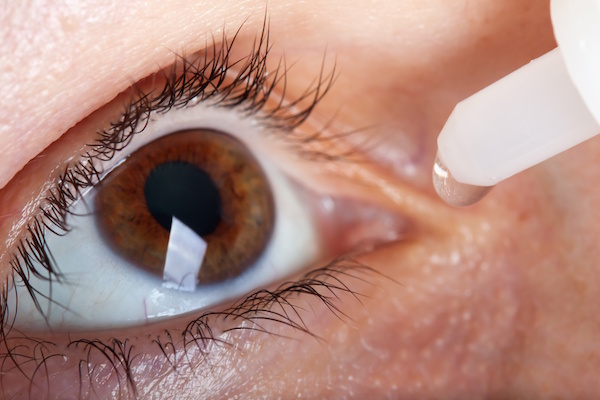
THURSDAY, Nov. 12, 2015 (HealthDay News) — A common Parkinson’s disease medication might hold potential for preventing or treating macular degeneration, the leading cause of vision loss in the elderly, new research suggests.
At this stage, no one is recommending that patients take the drug, levodopa (L-dopa), to thwart eye disease. But the findings are intriguing, researchers said.
“Patients taking L-dopa for any reason are much less likely to develop age-related macular degeneration. If they do, they develop the disease much later in life than those not taking L-dopa,” said study lead author Brian McKay, an associate professor of ophthalmology and vision science at the University of Arizona.
However, the study doesn’t actually prove that levodopa causes a lower incidence of age-related macular degeneration. It only uncovered an association between the two.
Age-related macular degeneration affects about 30 percent of those older than 75, McKay said. It is caused by deterioration of the macula, the center part of the retina, and by affecting vision, it can severely limit the ability to perform everyday activities. Treatments can slow its progression but there is no cure, and it can lead to blindness.
“This disease robs people of close vision,” McKay said. A preventive treatment “will allow many to see their families and grandchildren as they age, and allow the aging population to keep their independence and drive, read, cook and watch TV,” he said.
In the body, levodopa turns into dopamine, a naturally occurring chemical that appears linked to normal function of the retina, McKay said. In Parkinson’s, insufficient dopamine contributes to movement problems.
For the study, researchers analyzed medical records of 37,000 patients from a Wisconsin clinic. The researchers looked for signs whether or not those who took levodopa had lower rates of age-related macular degeneration. They also examined a medical database of 87 million people.
The researchers found that diagnosis of age-related macular degeneration occurred, in general, around age 71. But among those who took levodopa, it occurred much later, at around age 79.
According to McKay, the drug may affect development of age-related macular degeneration by protecting parts of the eye known as photoreceptors. These neurons help the body sense light.
Levodopa, however, might not be the major player here. It’s possible, McKay said, that Parkinson’s disease itself could reduce the risk of age-related macular degeneration. Or there could be another scenario.
McKay mentioned that having red hair is linked to higher risks of both Parkinson’s disease and age-related macular degeneration. This suggests a connection. “I am not sure the diseases are completely independent,” he said.
In Parkinson’s patients, levodopa causes side effects such as nausea and low blood pressure, but McKay said side effects in people without Parkinson’s are unknown. He said the drug is sold over the counter and taken by body builders, among others.
Levodopa is inexpensive, and that may be a big problem, said Dr. Paul Bernstein, a professor of ophthalmology and visual sciences at the University of Utah School of Medicine. He wasn’t involved with the study.
Since it’s cheap, “many drug companies won’t be interested in repurposing it,” he said, noting that could spell trouble for research.
Bernstein also cautioned that this study doesn’t confirm that levodopa will help people with age-related macular degeneration or those at risk for developing it.
“This is a first step,” Bernstein said. “It may point to doing future studies. But I wouldn’t recommend that my patients take L-dopa now. It could be dangerous.”
If future research proves it is effective against macular degeneration, the drug potentially could be used to treat or prevent the condition, although it’s unlikely to reverse existing eye damage, McKay said.
Clinical trials are the next step, he added, but they will take a few years. No clinical trial is currently in progress, but researchers are looking for funding to start one.
What causes macular degeneration is unknown, although genetics, being overweight and smoking are thought to play a role, according to the American Macular Degeneration Foundation. Whites are more vulnerable than blacks and Hispanics to the condition.
The study was published Nov. 9 in the American Journal of Medicine.
More information
For more about macular degeneration, see the National Eye Institute.
Copyright © 2026 HealthDay. All rights reserved.

